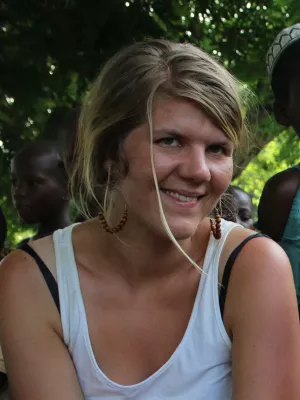
Emma Johansson
Researcher

Envisioning sustainable carbon sequestration in Swedish farmland
Author
Summary, in English
Negative trends of climate change and biodiversity loss are closely linked with farming practices, and it is therefore essential to re-think how agricultural systems can sequester more carbon, and simultaneously create vital ecosystems. The overall aim of this research is to imagine Swedish farms as carbon sinks rather than sources, and how to re-design the current farm- and food system to also address other social, economic, and environmental sustainability challenges. This paper is the outcome of two visioning workshops together with participants in an ongoing initiative called Swedish Carbon Sequestration [Svensk Kolinlagring]. Participants discussed what alternative futures might look like, how they would function, and how to get there. The farm-level visions include perennial crops, keyline design, online farmers markets, increased collaboration between farms, and increased knowledge about soil health. The participants highlight complex interactions between animals, trees, leys, and crops that can support carbon sequestration. They also emphasize the need to increase both farmer's and society's knowledge about soil health and its multiple positive effects on carbon sequestration. In addition, a transformation of the farm- and food system would also contribute with positive effects on farmers income and their autonomy over decision making and long-term planning, in turn also improving farmers’ and consumers’ health. The participants highlight that the food system will be transformed by changes in consumer demand, increased knowledge and awareness, shortened value chains, and by changing policies and financial support systems to favor farmers who engage with agroecological principles of farming.
Department/s
- BECC: Biodiversity and Ecosystem services in a Changing Climate
- LUCSUS (Lund University Centre for Sustainability Studies)
Publishing year
2022-09
Language
English
Pages
16-25
Publication/Series
Environmental Science and Policy
Volume
135
Document type
Journal article
Publisher
Elsevier
Topic
- Environmental Engineering
- Agricultural Science, Forestry and Fisheries
- Earth and Related Environmental Sciences
Keywords
- Carbon sequestration
- Food systems
- Future scenarios
- Knowledge co-production
- Regenerative farming
- Transdisciplinary research
Status
Published
ISBN/ISSN/Other
- ISSN: 1462-9011